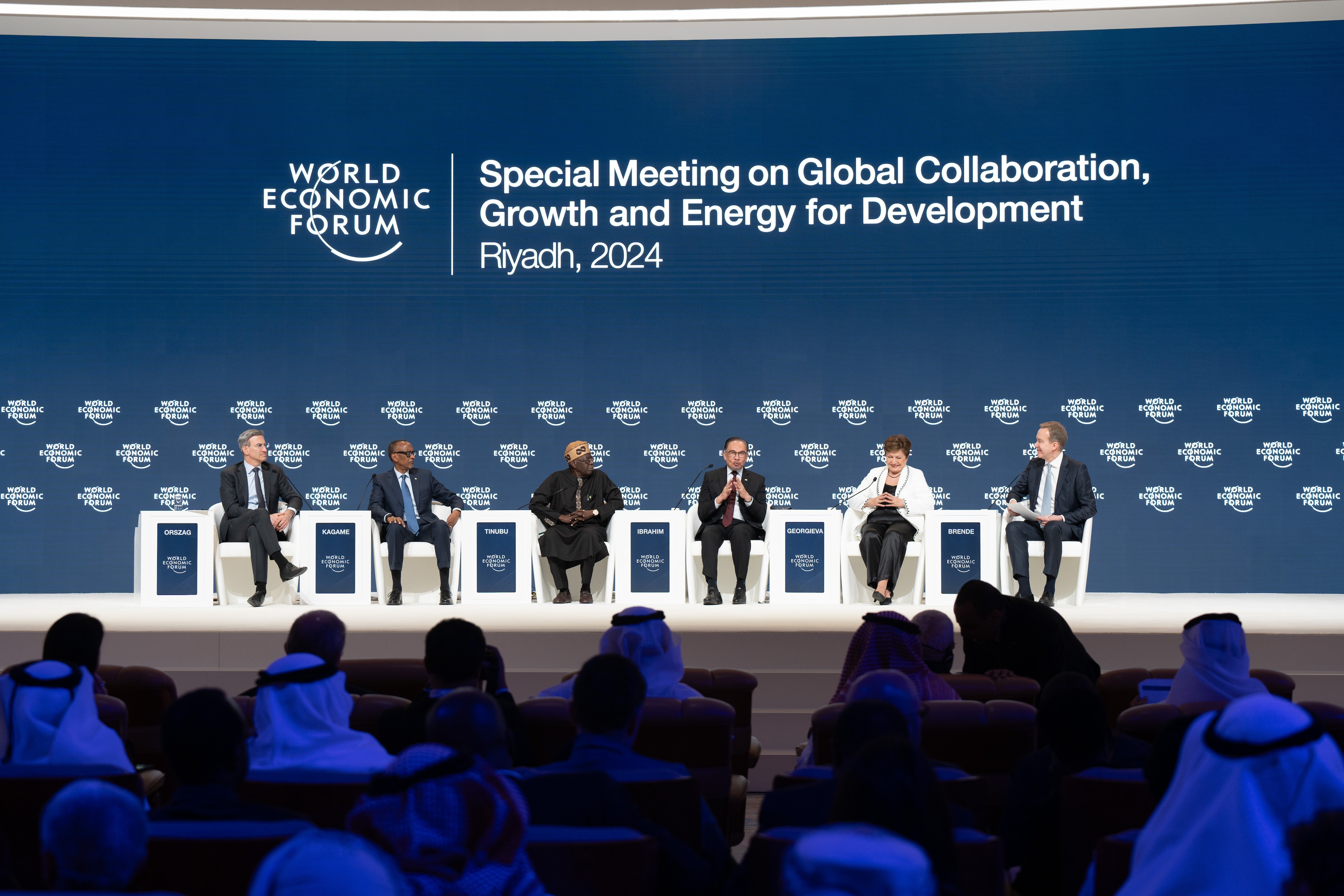This man is sleeping out in the Davos cold to make a point about homelessness


Get involved with our crowdsourced digital platform to deliver impact at scale
Stay up to date:
Real Estate
- Homelessness is a global problem with around 150 million people lacking a roof over their heads.
- It affects even wealthy places: in London homeless more than doubled between 2010 and 2017.
- Activists are sleeping in sub-zero temperatures
In a snowy field at the bottom of one of Davos’ many ski slopes, Andrew Funk, a former homeless man turned activist, pauses outside the draughty teepee where he will spend the night. He encourages me to keep an eye out for shooting stars and jokes they’re sometimes difficult to spot in Davos because ‘you don’t know if it’s a private jet or a star.’
Funk, 38, became homeless in Barcelona in 2015 after a failed business venture left him penniless. A new father, he was separated for four months from his newborn son, an experience which turned what should have been the happiest moments of his life into a nightmare.
Being homeless, he says, can be an othering and lonely experience where human decency is a luxury, not a given.
"A simple thing for people to understand is that a homeless person is more likely to help them if they are homeless than a current friend they have right now," he said.

"Homelessness means losing almost everything, except for the possibility of a stranger caring."
Now, years after his time on the street, Funk is President of Barcelona-based Homeless Entrepreneur, a non-profit organisazion that campaigns against homelessness through organized ‘sleep outs’ around the world.
During Davos, he and his small team have been sleeping in the freezing cold, attending sessions on the fringe of the annual meeting and engaged with locals and guests.

A truly global issue
Homelessness is truly a global issue. Every night, millions of people go to sleep without a roof over their head.
Researchers estimate that roughly 150 million people, 2% of the global population, are homeless - and the figure could be much higher, because of under-reporting. With the expansion of cities and the movement of populations from rural areas to cities and towns, the problem has only got worse. What’s more shocking is how homelessness is prevalent even in some of the world’s most prosperous cities and countries.

In London, the number of rough sleepers has more than doubled between 2010 and 2017. Germany and France have both seen the number of homeless people rise and in the US, on any single night, more than half a million people go homeless.
Some countries have taken decisive action. Finland has been lauded for its ‘housing first’ policy which puts giving homeless people housing the first step in their reintegration into society and solving other health or mental issues.
For Funk, understanding and solving homelessness means bridging the gap between the haves and the have-nots.
"The only way you’re going to reduce that gap is by including those being excluded economically."
Homeless Entrepreneur’s own process is holistic, with people being given nine distinct advisors covering every aspect of life, from legal help to education, to help them make the transition into more stable living.
Homeless Entrepreneur activists have been sleeping outside at Davos since 2018, but Funk is keen to emphasize that their presence is not a protest. Rather, he says, it’s an action that he hopes will he heard, even though he thinks the chances are slim. Quick to offer solutions, he’s slow to criticise.
"My role is not to tell someone they’re fascist for what they’re doing, it’s to ask them to include me in the process. Our question is really how can we add value."
Thinking forward to the next Annual Meeting in 2021, Funk has an invitation for participants curious to understand the realities of homelessness.
"I would invite them to sleep out with us. Maybe next year... which participants would be interested? That’s definitely something that’s plausible."
Don't miss any update on this topic
Create a free account and access your personalized content collection with our latest publications and analyses.
License and Republishing
World Economic Forum articles may be republished in accordance with the Creative Commons Attribution-NonCommercial-NoDerivatives 4.0 International Public License, and in accordance with our Terms of Use.
The views expressed in this article are those of the author alone and not the World Economic Forum.
Related topics:
The Agenda Weekly
A weekly update of the most important issues driving the global agenda
You can unsubscribe at any time using the link in our emails. For more details, review our privacy policy.
More on Forum InstitutionalSee all
Gayle Markovitz
April 27, 2024
Mirek Dušek and Maroun Kairouz
April 27, 2024
Kate Whiting
April 26, 2024
Spencer Feingold and Gayle Markovitz
April 19, 2024
Kate Whiting
April 17, 2024






